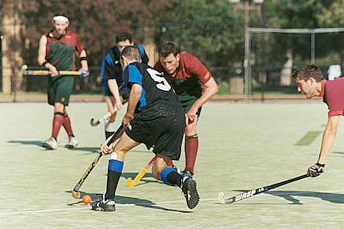CAPS
•Cognitive: Make choices about creating and accessing open spaces, how to lose a check, using communication to receive a pass
Ask questions to highlight tactical problem being addressed – communicating how activities enhance growth and development
•Affective: Involve students in evaluation procedures
Demonstrates both leadership and followership behaviours
•Psychomotor: Use task progression to build on student’s own present skills
Practice proper techniques in small tactical games and continue in final game
•Social: Uses fair rules
Demonstrates cooperation in play among peers

BC IRP Connections
b1 apply learned movement skills in new and unfamiliar physical activities
B2 demonstrate proper technique to send and receive objects with accuracy, distance, and control in unpredictable settings
B3 perform sequences using learned non-locomotor, locomotor, and manipulative movement skills, demonstrating effective use of qualities of movement (e.g., speed, force, flow)
c1 apply safe procedures for specific physical activities
C2 model fair play in all aspects of physical activity
Field Hockey
In this unit students will be introduced to field hockey. Field hockey is a territory invasion sport that is played on a field about the size of a soccer field, preferably turf but grass works too. Field hockey can also be played indoors although the strategies are much different compared to outdoor. While the focus will be on outdoor strategies, they will begin the unit indoors, until they become comfortable handling the stick and ball. Then they will move outdoors where they will require more strength and precision to move the ball through the grass. Due to the danger of the regulation ball, the students will use a softer, lighter ball for play in PE. The strategies and positioning for field hockey are quite similar to soccer except that it is a much more offensive focused game as opposed to defensive largely because of the small net size.
The students will be playing field hockey four times a week during the month of September alternating to dance on Fridays. The first three weeks will focus more on skill refinements and task progression, and in the last week they will play a round robin “tournament”. Since this is at the beginning of the school year, the teacher will use the first two weeks to analyze the abilities of the students. In the third week, the teacher will put the students onto four evenly matched teams and they will be able to work together before playing in the tournament. As per the “Sport Education Model”, this unit will focus on fair-play, working with teammates of all skill levels, as well as, plan, practice and compete.











